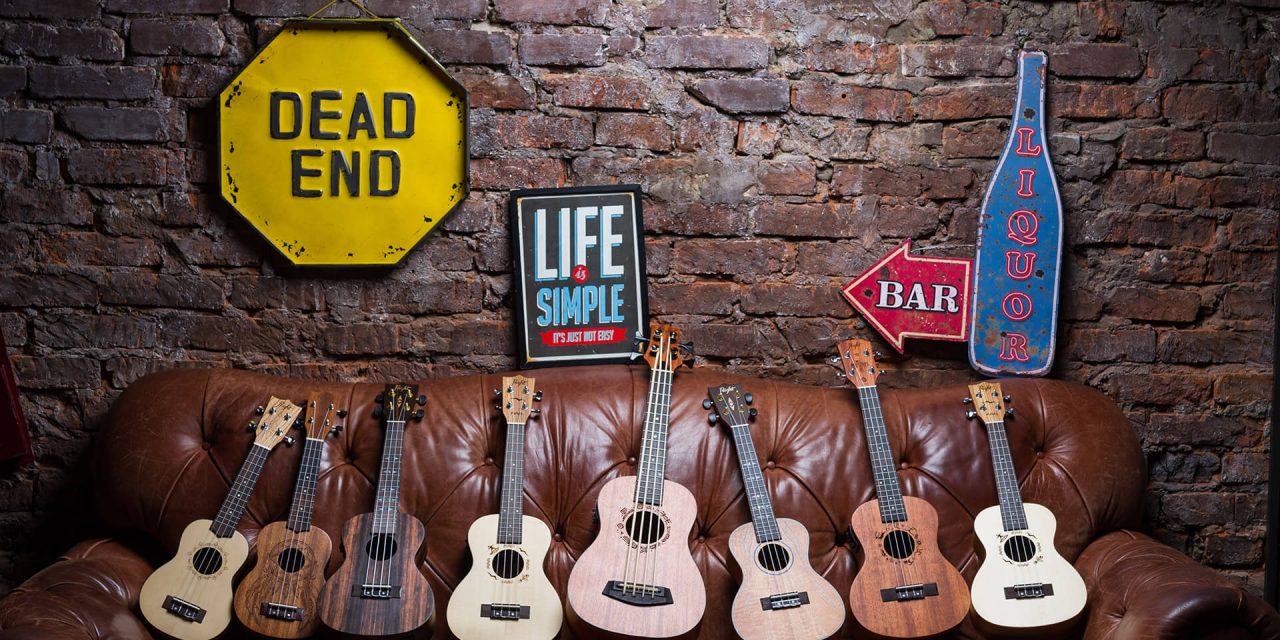Ukulele Strings
With the once humble ukulele now established as the most popular first-time musical instrument with players of all ages, now is probably a good time to consider the often overlooked area that is ukulele strings. We all need them, but do we know the differences, and why some feel better for you than others.
Here we’ll discuss the different materials, sizes, stringing technique to help tuning stability and the various brands of string on the market today. Before that though an important point to remember, the best string for you really is the one that feels best for you, the one that makes playing the ukulele a joy and not a chore and be aware that over time this may change depending on what you require from your instrument.
Let’s start with the different materials that ukulele strings are made from.
Materials
Different materials give different sounds, and therefore some are preferred for certain genres.
Nylon strings are warm and mellow and are the modern version of gut strings. Perfect for gentle strumming and preferred for Hawaiian styles they’re durable and easy on the fingers. A good all-rounder really. Aquila’s Nylgut strings offer the sound of gut strings with the benefits of a modern material. These are seen as a step up from tradition nylon strings.
Fluorocarbon strings have noticeably brighter sound compared to nylon strings and are less sensitive to humidity making string tuning more stable.
Wound nylon strings have a nylon core wound with nylon wrap, these are good for the larger ukuleles as they can add bass and power just like wound metal strings which have a metal core wrapped with a metal outer.
Steel strings are not that common for the ukulele and usually used on hybrid instruments such as the guitar/ukulele or banjolele. The tension is higher than the more usual string materials so may cause damage to your instrument. Always check that your instrument is suitable before fitting steel strings.
Models and Sizes
This is important as you need to get the correct string length for your ukulele. The most popular model is the Soprano or Standard. This is the model you see everywhere. The body measures 21” and the scale is 13”. Usually tuned to GCEA or ADF#B. The Concert is slightly bigger featuring a 23” body and 15” scale. Tuning like the Soprano is GCEA or ADF#B. The Tenor is slightly larger again at 26” for the body and scale of 17”. Tuned in GCEA, ADF#B or DGBE. The largest model is the Baritone. With a 30” body coupled with a scale length of 19” these deliver real low end. Usually tuned in DGBE. While we’re talking about tuning it’s worth noting that there are two versions of the GCEA tuning. There’s GCEA where the G is lower than the other strings and there’s gCEA where the G is an octave above. It’s important to know the difference when ordering strings and of course when restringing your instrument.
Restringing Technique
A good place to check out restringing technique is on YouTube, most of the major manufacturers of strings will have videos on how to restring. The strings must be fastened to the bridge and machine heads correctly to ensure stable tuning. If you’re not sure how to restring your instrument bring it into Ackerman Music and we’ll be happy to re-string it for you.
Brands
At Ackerman Music we carry Aquila, D’Addario, Ernie Ball and Flight string sets for all models and sizes of ukulele. Aquila are the leading name in ukulele strings, a dedicated ukulele company, they know how to voice a string to bring out the best in your instrument. D’Addario, a major guitar string manufacturer, have been making strings for all instruments since the 17th century so you can be assured that their strings are top quality. Ernie Ball are also primarily a guitar string manufacturer famous for their brightly coloured Slinky string packs. Their experience of the guitar string allows them to make an excellent ukulele string. Flight make a wide range of ukuleles and offer strings to match. Made in Japan these fluorocarbon string sets produce a clean, crisp, clear, and bell-like tone quality.






